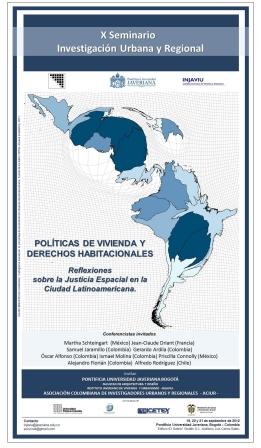Abstract
En la revisión y ajuste del plan de ordenamiento territorial-POT, el aporte fundamental fue priorizar los aspectos ambientales, el cual se considero con grandes vacíos que originaban serios problemas al ordenamiento del territorio y a su sostenibilidad .Los métodos empleados fueron el descriptivo, analítico y prospectivo, igualmente, se usa el método empírico, donde se tuvo en cuenta el trabajo de campo realizado por el grupo de expertos que trabajaron en la revisión del POT y el conocimiento y experiencia sobre el tema de actores sociales (campesinos, ganaderos, agricultores, comerciantes, etc.), que fueron invitados a participar en los diferentes talleres que se realizaron en la fase de diagnóstico y formulación, tanto en la parte urbana como en la rural en todo el municipio. En el plan de ordenamiento, se actualizo el diagnóstico y se diseñaron en la formulación las categorías de protección para las zonas más frágiles del territorio, se especializaron las áreas con fines de conservación y recuperación paisajística e identificaron los ecosistemas de importancia ambiental.This journal is registered under a Creative Commons Attribution 4.0 International Public License. Thus, this work may be reproduced, distributed, and publicly shared in digital format, as long as the names of the authors and Pontificia Universidad Javeriana are acknowledged. Others are allowed to quote, adapt, transform, auto-archive, republish, and create based on this material, for any purpose (even commercial ones), provided the authorship is duly acknowledged, a link to the original work is provided, and it is specified if changes have been made. Pontificia Universidad Javeriana does not hold the rights of published works and the authors are solely responsible for the contents of their works; they keep the moral, intellectual, privacy, and publicity rights.
Approving the intervention of the work (review, copy-editing, translation, layout) and the following outreach, are granted through an use license and not through an assignment of rights. This means the journal and Pontificia Universidad Javeriana cannot be held responsible for any ethical malpractice by the authors. As a consequence of the protection granted by the use license, the journal is not required to publish recantations or modify information already published, unless the errata stems from the editorial management process. Publishing contents in this journal does not generate royalties for contributors.


